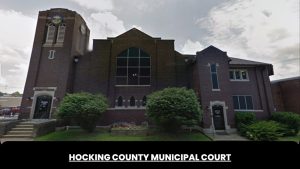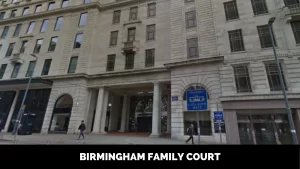Why Was the Supreme Court’s Ruling Important in Gitlow v. New York With Respect to Due Process?
Gitlow v. New York: Shaping American Constitutional Law
In the annals of American constitutional law, certain cases stand out as pivotal moments that redefined the landscape of civil liberties and individual rights. Gitlow v. New York, a landmark Supreme Court decision, is undoubtedly one of them. This article delves into the significance of Gitlow v. New York, examining its historical context, legal implications, and enduring relevance in modern times.
Background of Gitlow v. New York
The story begins in 1919, a turbulent period in American history marked by the aftermath of World War I and the First Red Scare. Benjamin Gitlow, a member of the Communist Party, found himself at the center of a legal storm. His arrest and subsequent trial stemmed from his distribution of revolutionary pamphlets advocating for the overthrow of the government. New York’s Criminal Anarchy Law, enacted to suppress such revolutionary activities, became the basis for his charges.
The First Amendment and Free Speech
At the heart of Gitlow’s defense was the First Amendment of the United States Constitution, a cornerstone of American democracy that protects freedom of speech. The Supreme Court faced a critical question: did the First Amendment’s protection extend to state laws? In other words, did Gitlow’s conviction infringe upon his constitutional rights?
see also Madison County Courthouse
Expansion of the Fourteenth Amendment
To decide Gitlow’s fate, the Court had to grapple with the Fourteenth Amendment, which guarantees due process. This case raised the concept of “incorporation,” forcing the Court to determine whether the Bill of Rights applied to state actions through the Fourteenth Amendment.
The Espionage Act and the Gitlow Case
The Espionage Act of 1917 played a significant role in the Gitlow case. Enacted during World War I, this act aimed to prevent interference with military operations and recruitment. It formed a crucial element of the legal backdrop against which Gitlow’s case unfolded.
The Supreme Court’s Decision
In a 7-2 decision, the Supreme Court upheld Gitlow’s conviction but offered a broader perspective. This decision marked the birth of the incorporation doctrine, signifying that certain provisions of the Bill of Rights applied to state laws.
Significance of Incorporation Doctrine
The incorporation doctrine became a linchpin for protecting civil liberties from state infringement. It meant that fundamental rights, including free speech, were shielded from state-level restrictions.
Impact on Subsequent Cases
Gitlow v. New York didn’t stop at being a milestone in itself; it became a legal precedent for numerous subsequent cases involving the First Amendment, due process, and the incorporation doctrine. It served as a cornerstone for safeguarding individual liberties.
Balancing Free Speech and National Security
This ruling established a framework for balancing free speech rights against national security concerns. It’s a delicate equilibrium that continues to shape legal discussions to this day.
Clarity on Due Process Rights
The case also brought clarity to the scope of due process rights, particularly in the context of state actions. It solidified the principle that states could not arbitrarily infringe upon fundamental rights.
Gitlow v. New York in Modern Context
Even in the 21st century, Gitlow v. New York remains relevant. It serves as a reminder of the ongoing tension between individual freedoms and the government’s duty to protect the nation.
Preservation of Civil Liberties
The Gitlow decision is a testament to the importance of preserving civil liberties, even in times of political turmoil and national security concerns.
see also Dukes Probate And Family Court
Controversies and Criticisms
While celebrated for its contribution to constitutional law, Gitlow v. New York has also faced criticisms. Some argue that it didn’t go far enough in protecting free speech.
In conclusion, the Supreme Court’s ruling in Gitlow v. New York was a pivotal moment in American jurisprudence. It clarified the relationship between the First Amendment, due process, and state laws, setting the stage for the protection of civil liberties for generations to come.
Frequently Asked Questions (FAQs)
1. What was the primary issue in Gitlow v. New York?
The primary issue was whether Benjamin Gitlow’s conviction for distributing revolutionary pamphlets violated his First Amendment rights.
2. How did Gitlow v. New York impact constitutional law?
It established the incorporation doctrine, extending certain Bill of Rights protections to state laws.
3. Why is Gitlow v. New York significant in modern times?
It continues to inform discussions on the balance between individual freedoms and national security.
4. What criticisms have been raised regarding the Gitlow decision?
Some argue that it didn’t go far enough in protecting free speech.
5. Why Was the Supreme Court’s Ruling Important in Gitlow v. New York With Respect to Due Process?
The ruling clarified the scope of due process rights, especially in relation to state actions, solidifying the principle that states couldn’t arbitrarily infringe upon fundamental rights.





